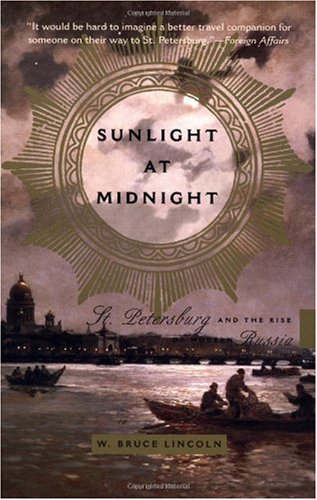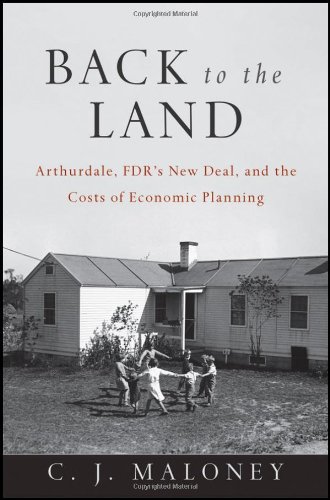The root of famine lies not in the gods or in the stars but in the actions of man.
~ Murray Rothbard (1985)
 Mao: The Unknown Story
Best Price: $2.30
Buy New $9.00
(as of 10:43 UTC - Details)
Mao: The Unknown Story
Best Price: $2.30
Buy New $9.00
(as of 10:43 UTC - Details)
This being the holiday season it is good for the soul to spend a moment and give thanks to God for His blessings so thereafter, soul at ease and heart full of holiday cheer, you may rush back to Wal-Mart and resume punching out your fellow shoppers during infantile orgies of spending. I fear with America's high unemployment and a political elite seemingly bent on destroying the currency we might be psychologically inclined, as libertarians, to look on the dark side of things this Christmas. Allow me to point out a little ray of sunshine.
By examining our nation's history we see that America is indeed exceptional and blessed by God in one very important way – we have never experienced famine. It might not sound like much, but you don't know what you've got until the refrigerator is bare. Episodes of famine are rife throughout recorded time; the past gives us innumerable episodes when millions of desperate, starving people were reduced to wander like the animals of the forest, every moment of their last wretched days spent in agonizing and often futile searches for food.
Famine is an unrivaled horror; of all the ways to die none comes close to matching the physical and psychological torment of starving to death. It is the most painful way to end your life, a slow, drawn out execution that will reduce even the most proud of men to root eagerly through horse manure and swallow any undigested oats within it. Better for any nation an atomic bomb attack than famine, if history is any guide. Hardly any peoples on earth can boast of never knowing famine. During their time under the Tsars famine swept Russia so frequently that permanently staffed government bureaus were always on hand to deal with them.
 The Harvest of Sorrow:...
Best Price: $3.74
Buy New $14.96
(as of 10:20 UTC - Details)
The Harvest of Sorrow:...
Best Price: $3.74
Buy New $14.96
(as of 10:20 UTC - Details)
The physical effects of starving are pitiful and utterly disgusting. The primary change, of course, is a dramatic loss of weight as the body, in order to keep the heart pumping and central nervous system nervous, extracts the needed energy from pre-existing muscle and fat. Once this is depleted the body slows down to save energy, the starving become lethargic and incapable of any prolonged physical exertion. Entire families will lay down together and pass away one by one, famine will reduce whole villages and towns into graveyards. Under the assault of hunger great cities of millions will grow quiet as coffins.
 Sunlight At Midnight S...
Best Price: $8.71
Buy New $24.83
(as of 08:25 UTC - Details)
Sunlight At Midnight S...
Best Price: $8.71
Buy New $24.83
(as of 08:25 UTC - Details)
In St. Petersburg during the worst of its 900-day World War 2 siege, people considered themselves lucky to be eating the lubricant used for tanks and one person noted "people are all bloated, frightful-looking, black, dirty, and emaciated. Young people have become so ghastly looking…it's simply awful to look at them." (Lincoln, 2000, 282) Starving people are not only hard on the eyes, they are worse on the nose. With a weakened immune system the body is exposed to a number of diseases that cause various skin eruptions, diarrhea, and sores. The stench of the starving revolts the senses.
Yet even more than the physical devastation, it is in its psychological effects where starvation extracts the heaviest toll. People withdraw from the world about them, even from family, and think of nothing but food. The urge to survive, the endless craving from hunger will turn men into predators against each other. During the time of Stalin's terror famine upon Ukraine (when at least six million perished) it was dangerous for children to walk around alone – they were prone to be snatched, strangled, and cooked. In the town of Poltava an entire operation for the processing of children's meat was discovered by the Soviet secret police (Conquest, 1986, 288). But the consumption of a child didn't necessarily need to be done by strangers. When Mao's famine was raging throughout China from 1958 to 1961 a couple in Anhui province, driven mad by hunger, murdered then ate their eight-year-old son. (Chang & Halliday, 2005, 438)
There are important lessons to be learned from the history of famines and the radically progressive Murray Rothbard once hit the nail on its head when he quipped, "Why does nature seem to frown only on socialist countries? If the problem is drought, why do the rains only elude countries that are socialist or heavily statist? (Rothbard, 2006, 84)
 Making Economic Sense
Best Price: $19.55
Buy New $69.99
(as of 08:05 UTC - Details)
Making Economic Sense
Best Price: $19.55
Buy New $69.99
(as of 08:05 UTC - Details)
Above all it is a country's agricultural sector where the political class must be strictly forbidden to venture. Such meddling carries a unique, very deadly risk to the safety of the working masses as should the political authorities get hold of the means of production and distribution of food society will lay at their feet, helpless for its very life. Instances of wholesale death by starvation – whether bought on by political bungling or deliberately engineered "terror-famines" – stuffs our libraries history sections and grants to us a clear warning.
 Back to the Land: Arth...
Best Price: $20.35
Buy New $19.74
(as of 04:30 UTC - Details)
Back to the Land: Arth...
Best Price: $20.35
Buy New $19.74
(as of 04:30 UTC - Details)
Our last century experienced famine of a scope and virulence unmatched in human history, this despite a revolution in agricultural productivity that should preclude any famine at all. Look at those countries stricken by famine during our last (and current) century and they all share a common characteristic – in each the political class had control over that most commanding height of any economy: its food supply.
From the 38 million or so starved on the whim of Chairman Mao to the 6 million done in by Stalin to the current misery and starvation in North Korea, each and everyone lends truth to the great Leon Trotsky's warning regarding political power over resources, "The old principle: who does not work shall not eat, has been replaced with a new one: who does not obey shall not eat." Food has too often been used as a weapon by the political class.
In America the agricultural sector has, despite constant political inroads, been for the most part free of the degree of government control found in countries prone to famine. That is our saving grace and our safety. But should this ever change and we find ourselves in the sad state of a North Korea you can still be thankful to God for His mercy upon us, His favored children, and count your holiday blessings.
For even should a deadly famine descend upon America and condemn you and your family to lay weak and still as corpses, feverish for food, your children's pathetic, skeletal appearance and stench will not trouble your mind in the least.
You will look right past them and think of nothing but food.
Sources Cited
- Chang, Jung & Halliday, Jon. Mao: The Unknown Story. (Alfred A. Knopf, New York, 2005)
- Conquest, Robert. The Harvest of Sorrow: Soviet Collectivization and the Terror-Famine. (Oxford University Press, New York, 1986)
- Lincoln, W. Bruce. Sunlight At Midnight: St. Petersburg and the Rise of Modern Russia. (Basic Books, New York, 2000)
- Rothbard, Murray. Making Economic Sense. (Ludwig Von Mises Institute, Auburn, AL, 2006)
December 7, 2010





